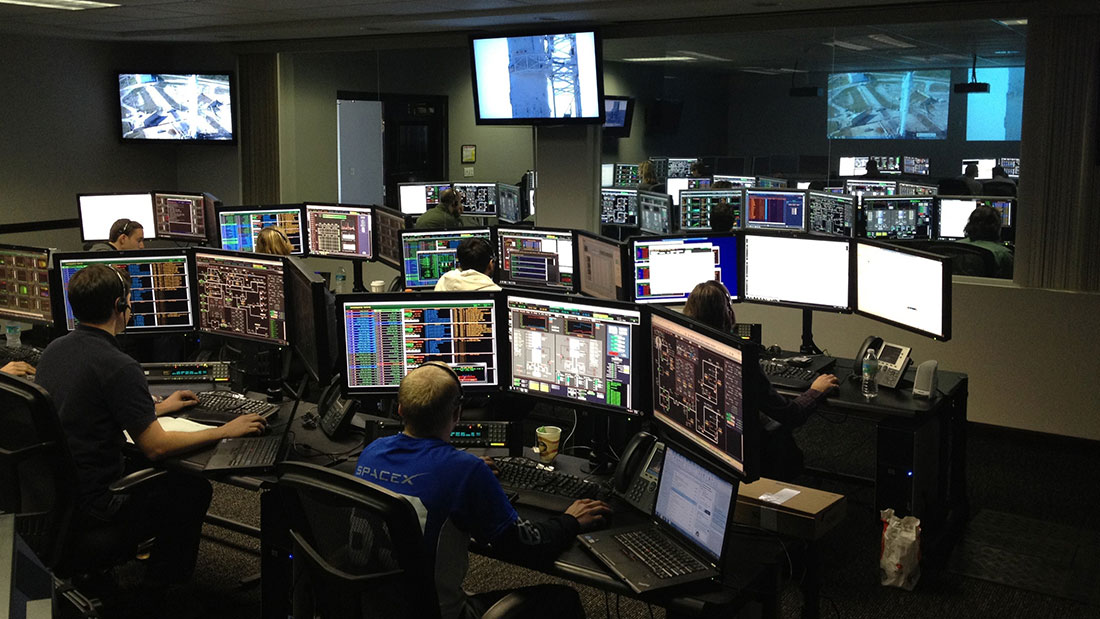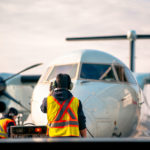Air Traffic Controller: Description and the best paid jobs

Air Traffic Controller
Description… and where to find the best paid jobs
What is Air traffic control - How It Works
Air Traffic Control is the process of managing the safe and orderly flow of aircraft into and out of airports and air route airspace corridors (flight paths). Systems (such as radar) and processes are used to minimise the risk of collisions and allow the maximum number of aircraft to fly.
All aircraft are tracked by air traffic control while they are flying in a given air traffic control’s airspace (such as an airport).
What is an Air Traffic Controller? What does an Air Traffic Controller do?
An Air Traffic Controller keeps aircraft separated in ‘corridors’ of controlled airspace such as on air routes and around major airports by keeping contact with all pilots in their airspace.
They use radar to monitor aircraft movements to ensure aircraft fly on pre-arranged routes and at pre-arranged altitudes
They also offer assistance to pilots and emergency services during in-flight emergencies.
Air traffic controllers also work for the military in the Airforce, Navy, Marines and Army.
Air Traffic Controller Duties and Responsibilities
Working from an Air Traffic Control Tower (or air traffic control centre) and using an air traffic control system, their job description includes:
- Providing pre-flight briefings and aeronautical information services
- Overseeing, controlling and directing aircraft movement during taxiing, takeoff and landing
- Monitor flight status of aircraft
- Direct aircraft safely according to weather (such as fog)
- Maintaining radio contact with pilots
- Interpret the Air Traffic Control radar display correctly to ensure a safe distance is kept between all aircraft in the monitored air space
- Attend to Air Traffic Control issues such as emergencies, in a calm and effective manner
Get a glimpse into the inside of an air traffic control tower of the future. A Ground air traffic controller usually works at ground level as the name suggests, as opposed to working in a control tower.
Official Language of Air Traffic Control
The language of the country is commonly used, however Aviation English is the de facto air traffic control lingo.
You can view an air traffic control glossary of terms here. Controllers use the air traffic control alphabet (phonetic alphabet).
How does air traffic control work?
Controllers use the following tools:
- Radio and headset
- Radar
- System Screen (software program)
Air Traffic Controller Requirements
An air traffic control specialist should be:
- Able to make accurate decisions quickly
- Computer savvy
- A team player
- Responsible, confident and motivated
- Able to work independently
- Able to speak and write english
- Over 18 years old
- Medically fit
- Able to pass a drug test
Air traffic controller hours are not 9 to 5. They typically work shift work which includes nights, weekends and public holidays.
Air Traffic Controller Similar Professions
Even though both roles deal with air traffic, an Aircraft Dispatcher (also called a Flight Dispatcher) has a different role to that of an Air Traffic Controller.
An Aircraft Dispatcher (sometimes called a Flight Follower or Flight Operations Officer) assists in planning aircraft flight paths taking into account the type of aircraft, load, flight restrictions and weather conditions.
Become an Air Traffic Controller
Pilot vs Air Traffic Controller
A pilot flies a single plane while an air traffic controller directs multiple aircraft. The two roles are different. A pilot is usually paid more.
Air Traffic Controller Jobs Near Me
How To Become an Air Traffic Controller - Is It Easy To Become an Air Traffic Controller?
An Air Traffic Controller School, college or academy will give you the education, training, certification and qualifications required for your career.
Your study may involve doing a degree or associate degree and some of your study may be online schooling. Some of your course will be to train and be tested on a simulator.
Your training will require passes in:
- English
- Mathematics
- A science subject (i.e. physics)
Training can also be gained by joining the Airforce.
For training, applicants are usually required to undergo a comprehensive application process that includes:
- A police check, medical examination and drug test
- An online cognitive ability test
- A computer based aptitude test
- An assessment day which involves a competency based interview and assessment
Trainees are usually employed on a probationary basis pending their successful completion of the course when they are offered a full time position.
The cost of your study will depend on where you live, however in the main it is not usually expensive.
How long is air traffic control school?
Most air traffic controller education programs are 12 months. Training contains theory and practical components. Study is around 12 months for the Tower stream and 14 months for the Enroute stream. Then there is on the job training. This can vary depending on the training organisation.
Air Traffic Controller Salary
Pay can vary with experience due to this being a specialist profession. Most controllers earn:
- Range – between $60,000 and $185,000 per annum
- Average – around $100,000 per annum
This includes an Airforce, Navy and Army air traffic control salary. Starting salary is usually at the lower end however you can expect to be paid higher quickly when you gain experience.
Highest paid Air Traffic Controller
For someone who has many years experience, they can be paid close to $200,000 per year.
Air Traffic Control Frequencies
Airband or aircraft band is the name given to the frequencies allocated to the VHF radio spectrum for civil aviation. Different parts of the band are used for radio navigational aids and air traffic.
Most countries require an operator license to use the air traffic control radio frequencies within the airband. An operator is usually required to be tested on competency procedures, language and use of air traffic control lingo (i.e phonetic alphabet).
Air traffic controller stress
According to most, the job is less about stress and more about pressure. An air traffic control tower has a quiet and serene atmosphere. There is however the pressure to think clearly and make decisions decisively and quickly about flight paths and safety.
Air Traffic Controller Mental Health
The aviation industry can exacerbate symptoms of people suffering from:
- Sleep deprivation
- Fatigue
- Stressful events
- Time zone changes
- Irregular access to medical care
- Social isolation and remote locations
These conditions are rare among air traffic controllers however if you find yourself suffering any mental health issues you should seek the appropriate help.
Air traffic controller age limit
There is no Air traffic controller retirement age. The only age requirements or restrictions are that you must to be at least 18 years old when you submit your application for certification.
Go here for
Air Traffic Controller Demand - Automation in Air Traffic Control
Air Traffic controller job prospects are good. Employment is expected to grow 3% per year until 2026. As technology improves, it is expected that an air traffic controller will be able to handle more air traffic as they utilize the latest technology, however air traffic is projected to increase as well.
Human Factors in Air Traffic Control
People naturally make mistakes, however working as part of a team, each team member should have the support of their work mates, to minimise mistakes.
Air Traffic Controller Application
For your application you will need to show your eligibility. You will most likely need to:
- Provide a background check
- Complete a pre-employment test or entrance exam
You may be able to complete a test prep online or complete some practice aptitude test examples by reading example exam questions and answers.




